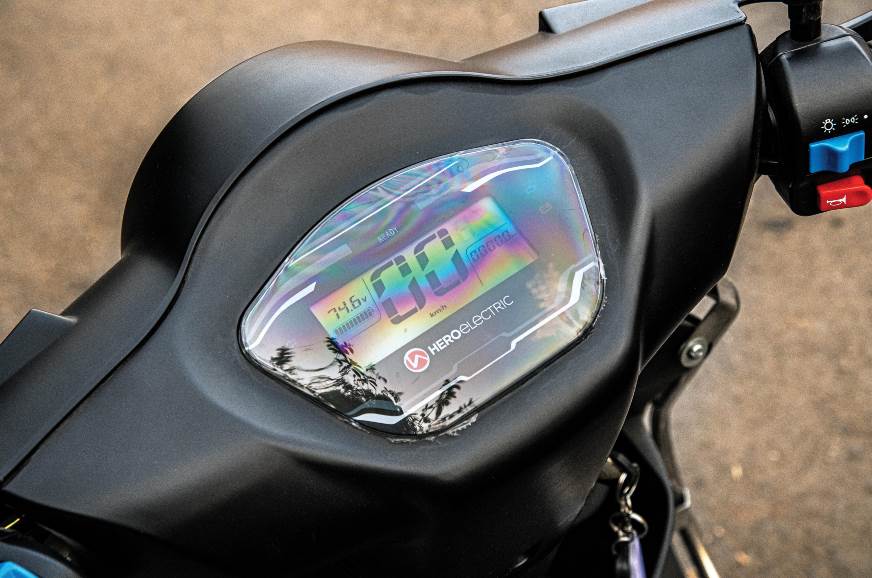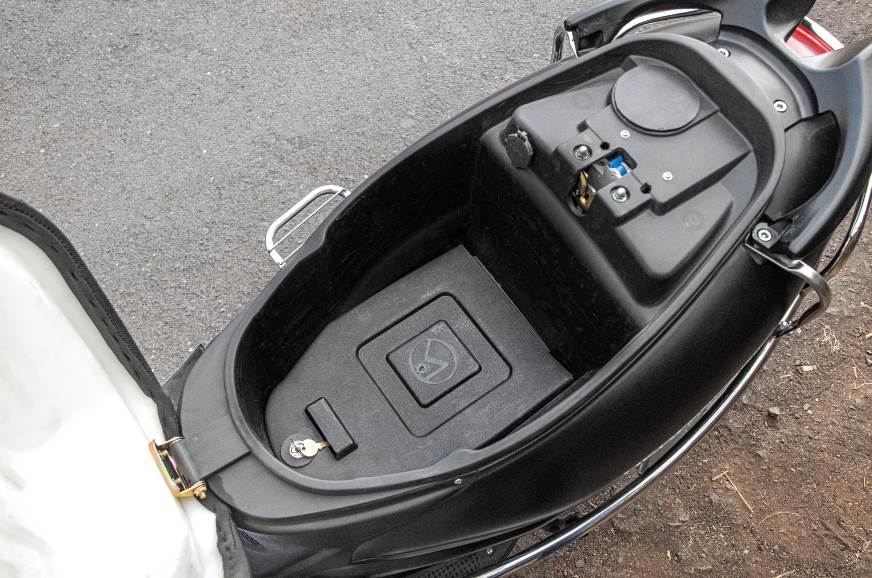We ride the flagship offering from one of India’s oldest electric two-wheeler manufacturers, to see where things stand.
Electric mobility is on a meteoric rise in India, and Hero Electric is one of the oldest players on the scene. It has spent a long time as the undisputed market leader when it comes to electric two-wheelers. So we rode its most expensive offering, the Photon HX, to get an idea of the best the company has to offer today.
The Photon HX comes under Hero Electric’s high-speed portfolio, which means it has a top speed higher than 42kph (Hero Electric claims 45kph), and therefore, qualifies for FAME-II subsidy. Post subsidy, the Photon will cost you Rs 80,790 (ex-showroom, Delhi), which places it on par with the top end of the 110cc scooter market and the entry-level of the 125cc scooter segment.
This is immediately a problem, because the Photon HX can’t compare to the performance levels of those petrol scooters. Its hub motor features rather humble numbers, producing 1.2kW and peaking at 1.8kW. The result is an indicated top speed of 53kph on flat ground, which translates into a true VBox speed of 47kph. Getting here isn’t a very swift processwith the Photon requiring 9.58sec for the dash to 40kph. The overall performance is just about good enough to be able to keep pace with city traffic, though you will want to keep left on wider, faster-flowing stretches of road.
However, beyond the modest power output, the bigger concern is that the throttle calibration has a lot of room for improvement. At low speeds, even very small throttle and carefully deliberated openings cause the scooter to lurch forwards aggressively, making riding in city traffic a challenging affair. You can try as hard as you like to be smooth, but the accelerator behaves like a switch – on or off.
This problem is compounded by the fact that applying the brakes even slightly causes the motor to cut out. Overall, it’s hard to get the scooter to behave predictably, and there seems to be a non-linear relationship between your inputs at the throttle and the result produced by the motor.
With drum brakes at both ends, the Photon’s braking hardware is quite basic, which Hero Electric appears to have combated by using a large amount of motor regen whenever the brake levers are pressed. The issue is that this regen function often only kicks in about half a second after a brake lever has been pressed. Even if you press the brake lever slightly, at high speeds, the scooter dials in quite a lot of regen, resulting in greater deceleration than you’d expect or want.
At the same time, there is only so much the regen can do, and when you need to stop urgently, the drum brake set-up fails to provide enough braking power, and stopping distances are quite long (nearly 10 metres from 40kph).
Perhaps the most well engineered aspect of this scooter is the suspension set-up, because its ride quality is better than many other EVs we have tested. That’s not to say that it’s excellent; it can feel quite unforgiving over larger and sharper bumps. But on milder, smaller imperfections, it does provide some amount of absorption. The overall chassis balance, though, feels quite nervous and the scooter wants to lean over quicker than you might expect. What’s nice is that the Photon is very light and manageable, and even if you’re short or have a lean build, you should have no problem handling this scooter around the city.
The features list is quite sparse, with the only real items on it being an LED headlight, digital instrumentation and an anti-theft alarm that gets triggered if someone moves the scooter. There is no reverse mode and the digital display houses only a speedometer, an odometer, and a single trip metre that automatically resets every time you turn off the ignition.

There’s also a charge level indicator split into eight bars, but its usefulness is limited. Depending on whether you’re accelerating, coasting off the throttle or braking, the charge level can go up and down by as much as four bars. That makes it hard to know exactly how much battery charge you actually have left.
Battery indicator issues aside, the Photon HX managed to go a respectable 89.8km on a full charge in our range test. What’s commendable is that this is almost exactly identical to the 90km that the company claims, which is refreshing to see in the EV segment. For what it’s worth, this is higher than many other EVs and definitely enough to pack in a full day’s commute, along with some last minute detours as well. That being said, performance does trail off as the battery’s charge level drops, and this becomes especially pronounced in the last 5km, with the scooter struggling to climb any sort of incline even at full throttle.
The Photon HX does look and feel like a full-size scooter, which is a positive. It’s also a fairly conventional design, and not trying to be quirky or off-beat like many of the other e-scooters out there. This will appeal to many, but the overall material quality and finish levels could be a lot better, particularly in areas like the underseat storage plastics. The front bodywork also produces a creaking sound if you press against it.

Storage space is at a premium when the portable charger is placed in the boot. Underneath the boot lies the 1.872kWh Li-ion battery, which, according to Hero Electric, is removable. While we could open the thin plastic flap to see and access the battery, we found that it was actually held in place by a bolted brace.
The Photon HX ticks a few important e-scooter boxes. It feels like a full-sized scooter and offers pretty decent range – even a tiny bit more than the Ather 450X, although with significantly lower performance. However, there are many vital aspects of the scooter that need to be a lot better. The accelerator calibration is in particular need of improvement, and the braking set-up needs work as well.
The overall quality and finish also trails behind what similarly priced petrol rivals have to offer. With all this considered, the Photon HX comes across as expensive, even after calculating the subsidies.
Ideally, if you are keen on an electric scooter, an extension of your budget would facilitate more impressive products like the Ather 450 Plus, Bajaj Chetak, or the TVS iQube. If that is not an option, the Bounce Infinity E1 we recently rode came across as a higher quality, better performing scooter at a slightly more attractive price, even if it can’t offer quite as much range.
























